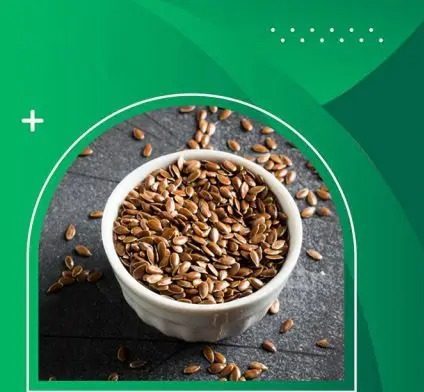Nowadays, with increasing awareness towards health and fitness, people have started following many new trends. One of these trends is the consumption of flaxseed. Actually, there are many articles and videos on social media and internet about the benefits of flaxseed, which is why people are including it in their diet. Flax seeds are believed to be beneficial for weight loss, heart health and digestion. It also contains omega-3 fatty acids, fiber and protein, making it a superfood.
However, every body's nature and needs are different. Therefore, it is not considered appropriate to consume flaxseed just by looking at the trend. In Ayurveda, flaxseed is described as hot in nature, which means its excessive consumption can be harmful for some people. Pregnant women, hot-tempered people and people suffering from certain health problems should not consume flaxseed without consulting a doctor. So, if you are also consuming flaxseed after seeing the trend, then it is important to know its properties, effects and advantages and disadvantages first. Today in this article of 'Health with Ayurveda' series, know from Ayurvedic Dr. Shrey Sharma of Ramhans Charitable Hospital, Sirsana, what is flaxseed? What are the benefits of eating it? Also, what are the effects of flaxseed, its disadvantages and what is the proper use of flaxseed from Ayurvedic point of view.
Nature and properties of flaxseed
Flaxseed is a small, shiny brown seed, also known as flaxseed. Flaxseed is hot in nature, hence its consumption in winter is considered beneficial. It contains Omega-3 fatty acids, fiber, protein as well as many essential antioxidants, which make it very beneficial for health. Consumption of flaxseed is considered beneficial for the heart, digestive system and skin. Flaxseed has a very low glycemic index, making it suitable for diabetics.
When and how to consume flaxseed
Consuming flaxseed in the morning is very beneficial. You can consume it with hot water or by mixing it with your food. It is more beneficial to grind flaxseed and use its powder. This is because whole flax seeds can be difficult to digest. It can be eaten by mixing it in salad, soup, smoothie or porridge. According to Ayurveda, one should avoid consuming flaxseed in large quantities because its nature is hot.
Benefits of flaxseed according to Ayurveda
In Ayurveda, flaxseed is considered to balance Vata and Kapha doshas. Flax seeds control cholesterol levels and can help maintain blood pressure.
Lentils contain a good amount of fiber, which makes you feel full for a long time and prevents you from overeating. It boosts metabolism, which helps in weight loss.
Consumption of flaxseed is beneficial for the digestive system. The fiber present in it provides relief from the problem of constipation and helps in keeping the stomach clean.
Flax seeds are beneficial for skin and hair. It reduces skin wrinkles and promotes hair growth.
Flax seeds have a low glycemic index, which helps reduce blood sugar levels.
Also read: Hrishikesh Tiwari has been struggling with diabetes for years, eats cinnamon to reduce sugar level.
When should you not eat flax seeds?
- Flaxseed has many benefits, but in some situations its consumption can also be harmful.
- Pregnant women should consume flaxseed in very small quantities or as per doctor's advice. Flaxseed is hot in nature, which can be harmful during pregnancy.
- People who already have a hot nature (aggravated pitta dosha) should consume flaxseed with caution. This may cause heat or other problems in the stomach.
- If you have any blood related problem then consult a doctor before consuming flaxseed.
- If a person already has digestive problems, consuming too much flaxseed may cause gas, stomach pain or constipation. In such a situation, consume it in limited quantity.
- side effects of flaxseed
- digestive problems
- Excessive consumption of flaxseed can cause stomach gas, bloating and constipation. Therefore eat it in limited quantity only.
- Flaxseed is hot in nature, which can cause excess heat in the body. It is best consumed during cold weather or with cold food.
Ayurvedic ways of consuming flaxseed
Flaxseed is used very carefully in Ayurveda. It is often eaten by mixing it with foods that have a cooling nature. You can also grind it and take its powder with honey or ghee. Consumption of flaxseed should be avoided in the summer season.
 look news india
look news india
